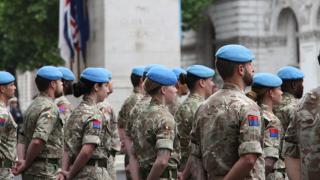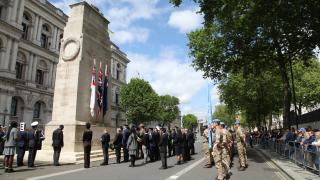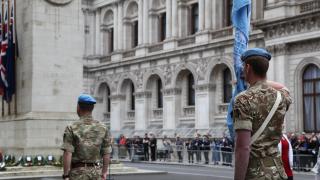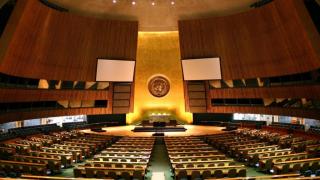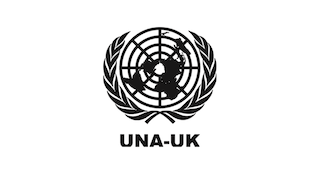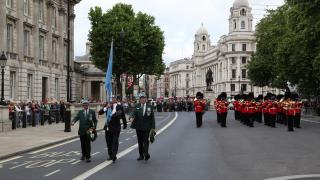In a speech given at the Royal United Services Institute (RUSI) today Shadow Secretary of State for Defence Nia Griffith MP committed a future Labour government to increasing the UK’s contribution to UN Peacekeeping.
Ms Griffith pledged that,
““The next labour government is committed to stepping up and substantially increasing our contribution to UN peacekeeping missions”
and that
“We will treble the UKs financial commitment by increasing the available funds for UN peacekeeping operations to £100 million”
as well as stating that
“UN peacekeeping offers good value for the taxpayer.”
UNA-UK has consistently argued over a number of years that the UK should increase its contribution to UN peacekeeping. The peacekeeping monitor Providing for Peacekeeping describes us as “the most consistently well-informed and vocal supporter of a greater UK role in UN peacekeeping”. Most recently we have made increasing the scale of UK contributions one of the key tests of the sincerity of the UK’s global Britain agenda, the substance of recent parliamentary evidence to the Defence Select Committee and the Joint Committee on the National Security Strategy, and the key theme of our most recent “Peacekeepers day” memorial service and conference, co-organised with RUSI.
UNA-UK is also pleased to see the government engaging strongly with this agenda. After the decision to double contributions to UN peacekeeping in 2015 and subsequent decision to extend this deployment until April 2020, our most recent Peacekeepers day events saw the highest yet level of government engagement, with three ministers participating in proceedings.
The UK currently contributes around 700 UN peacekeepers, primarily to Cyprus and South Sudan. While the UN reimburses troop contributors for the troops they send, there are additional costs to the Ministry of Defence that these reimbursements don’t cover. An absence of clarity over how to fund these additional costs is believed to have formed a barrier to deploying larger UN peacekeeping contingents. An earmarked £100 million budget could therefore make a dramatic difference to the UK’s ability to sustain more considerable deployments.
There are no public figures for the revenue implications of UK deployments to UN peacekeeping, but it is entirely possible that they are in the region of £33 million, thus explaining Ms Griffith’s claim that the pledge would represent a trebling of the UK’s financial commitment. In addition, the UK pays an assessed contribution to the UN’s peacekeeping fund. Currently that is 5.77% of a total budget of £6.8 billion, a figure of roughly $390 million or £295 million.
UNA-UK believes there is a strong rationale for the UK to increase its contribution. There is a clear moral case for peacekeeping which has been shown to be effective in deescalating conflict, preventing conflicts from re-occurring (upstream conflict prevention) and in preventing atrocities. We believe there is also a very pragmatic argument for increasing contributions to UN peacekeeping being in the national interest: it provides unmatched training opportunities and ways of developing and maintaining global influence; it provides a mechanism for sharing risk and leveraging the resources and credibility of the international community within an active foreign policy; and it saves taxpayers’ money by being far cheaper (not to mention more effective) than either any other kind of intervention, or the consequences of non-intervention.
Photo: the UNA-RUSI peacekeepers' day conference

